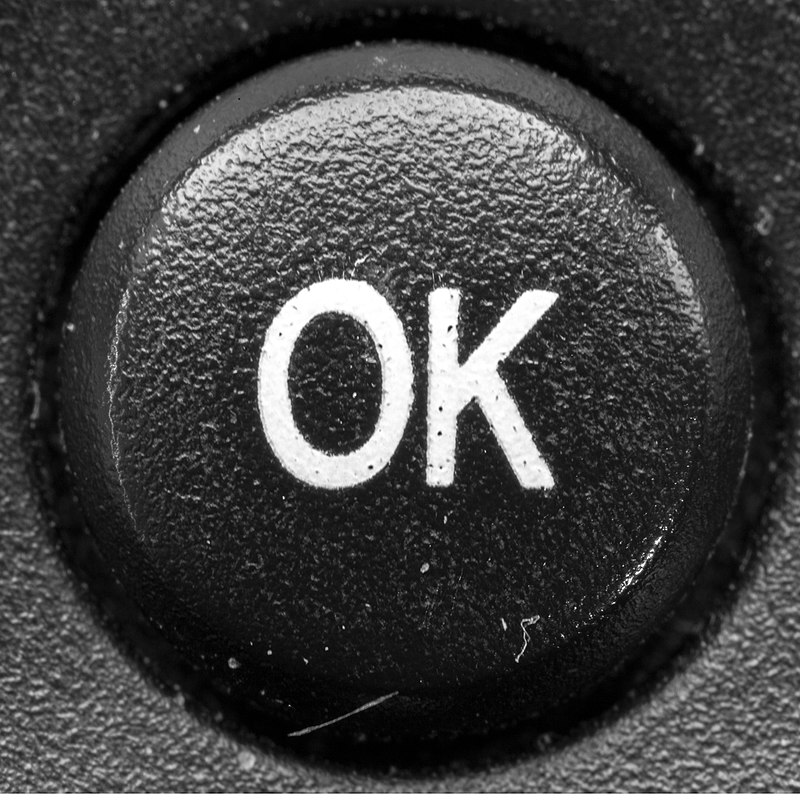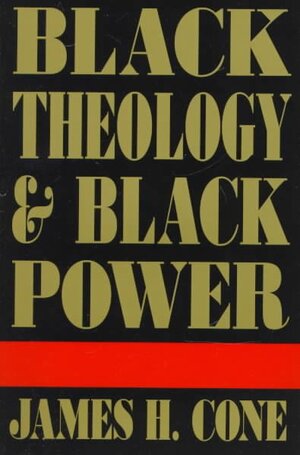 Communism is so powerful that even God fears it
Communism is so powerful that even God fears it
The Lord said, “If as one people speaking the same language they have begun to do this, then nothing they plan to do will be impossible for them. - Genesis 11:6
We should team up and kill god with the power of friendship
I’m going to kill god using a very large sword. Well, i’m going to bribe a teenager to kill god with a very large sword by paying for them to get a really ridiculous cut and color, as god is helpless in the face of spikey colorful hair.
Give them a robotic arm or two and it’ll really be a deal
found Philip Pullman’s hexbear account
Genesis has a couple of points where god is like “oh shit i have to put a stop to this or they’re going to drag me in chains to the hague”
The whole “god is omniscient and all-knowing and all-power and wise and invincible” stuff is a later addition to the fandom.
Depending on historical accounts, quite literally. There’s strong evidence that Yahweh was one of many gods that gradually took on more aspects of others until Judaism collapsed into monotheism.
There’s a reason the first commandment says to not have other gods before Yahweh, not that there are no other gods.
The OT makes so much more sense when you realize the Israelites saw Yahweh as “their” god who took care of them. And other nations had their own gods. Each nation their own diety. But the relationship between the Israelites and Yahweh was always transactional: they give him worship, praise, and obedience; and in return he gives them victory over their enemies (and their enemies’ gods), makes crops grow, etc.
What makes no sense is Christianity shoehorning Yahweh into some sort of universal, solo god who loves everyone but chose one very specific group of people in a very specific time to be “his” people because reasons.
Depends on the part of the Bible, even the Torah flits between universalisation and a local deity. And later bits like Daniel definitely so. The OT makes the most sense when you think of it as Some Dude bolting different stories together and attempting to retcon them into coherence, most of those stories also being redacted by another Some Dude centuries before. Even the 4 sources of the Torah are likely collations of earlier texts/stories/oral histories themselves.
Totally fair points
wears T-Shirt saying “Ask me about how Mary mantled Astherah like she was an Elder Scrolls series protagonist.”
Bible: communism works, don’t eat shrimp
don’t cross dress
and by cross dress I mean cross a fibre of flax with a fibre of cotton so as to make a blend and then dress yourself in it. for it is an abomination!
No mixing fabric, charging interest, eating shrimp, or having sex with animals. God means it. He’s pissed this time.
and don’t harvest everything in your fields! landless people must be able to glean after you are done with them. only an asshole takes all the grain.
also the weird stuff about making your wife sit in special water if you think she cheated on you.
Also houses can get leprosy AND HERES HOW YOU TREAT IT
There’s an interesting one [detail] that we saw very recently in a secret report from the State Department. I want to tell you about this one so you can reflect on it. That secret report made this point: That Grenada is different than Cuba and Nicaragua, and the Grenada revolution is, in one sense, “even worse,” using their language “than the Cuban and Nicaraguan revolutions, because the people of Grenada and the leadership of Grenada speak English, and therefore can communicate directly with the people of the United States.”
I once saw a great video compilation of english language communist songs, but it saddened me that the description said “despite there not yet being a Communist state with english as a majority language”. I was like “comrade, educate yourself” there have been several, Grenada is only the most recent, there was the Seychelles, Sierra Leone. Zambia, and you have most significantly Ghana. Even the Crown shows us this though portrayed as a bad thing and making soft-spoken Nkrumah into an angry black man https://www.youtube.com/watch?v=PpgGlPIdk94
I found a YouTube link in your comment. Here are links to the same video on alternative frontends that protect your privacy:
And I will aspire to make Philippines one…
I found a YouTube link in your comment. Here are links to the same video on alternative frontends that protect your privacy:
God is canonically terrified of Star Trek
If I let them achieve full luxury gay space communism, they’ll discover I’m just a 4th dimensional being inside a wormhole and bring about my destruction!
 What does god need with the means of production?
What does god need with the means of production?(This is our only Kirk emote)
I love that interpretation of the story of Adam and Eve I’ve encountered in a few places that sees God as ultimately afraid of what happens. He warns them that if they eat the apple from the “tree of the knowledge of good and evil, they will ‘surely die.’” It isn’t necessarily an order that is going to be disobeyed.
In this read, for God, good and evil are arbitrary things without consequence. He does not experience the consequences of these things. When Adam and Eve eat the apple, they now understand good and evil in ways that are real–they suffer, they see and feel what things are good and evil and come to know these ideas themselves. And god is scared, he’s freaked out by these little non-omniscient things understanding something he doesn’t, so he forces them out because they threaten his eden.
There’s a more positive interpretation of this that God actually understands that it’s not good that they don’t understand what good and evil is, and made humanity in their own image specifically to figure it out and surpass them. I like it a lot because it implies that being Christian requires a worldly, interpretative stance on morality and the world around you, instead of just following the literal rules of the Israeli people or assuming everything in the Bible is a direct moral lesson from God.
Tbh I read a lot of this stuff the way I read other mythology, which is to assume the writers may have understood irony and subtext the same way a modern writer might. It’s a position which may not always be appropriate for the material but which almost always provides me with good questions to bring into interpretation.
The Mayan popol vuh has a more overt presentation of what you describe btw, a story in which the creation of mankind is done by two primary deities so that they will simply have some new people to talk to. Their first attempt makes the men of stone, who are solid but clumsy, the second the men of wood, who are flexible but eventually snap, and finally the men of maize (us) who are soft but solid. I like how underneath it all, the two gods’ great efforts are to make people who are good talkers, who are solid like stone, but flexible like wood, and the trick was to make us soft and sensitive. It’s nice imo
In the NT, god only gives one real commandment to Adam before the Fall, and that’s to name shit. God is literally bringing stuff to Adam and saying “What do you call this?” like an excited parent and a child who’d just started talking. And it’s not entirely clear which one is which.
This goes so hard it’s unreal
I mean i guess it’s not really my idea but Thank you!!!
It was definitely a way to tell ancient leaders that division is the best way to prevent revolts.
That isnt communism and god isnt afraid of it. You are lionizing mesopotamian empires based on slavery and exploitation. Story of Babel is about class society and empire and god is horrified/appalled by it.
The city of Babel being built isnt a good thing. Think about this story in historical context rather than in the abstract. Babel is a mesopotamian city. It would be built using forced labour, would involve more intensive exploitation for the construction of monumental architecture and upkeep of an urban ruling class. Biblical god is distinctly not a fan of these things (slavery, exploitation, and urbanization all get you on his shitlist).
Unsettling the Word has a nice analysis of Babel in the modern canadian context, with Babel called “Petropolis” and the single language being the liberal jargon around development and profit.
This is not an interpretation I have encountered before. The old testament god loves slavery, genocide, exploitation, dick chopping offing, mass infanticide, and lots of other cool things. He doesn’t like golden idols, his ex wife, other contemporary gods from the Levant, and being held accountable.
Plus the ot is like thirty different documents from a bunch of different time periods and different authors with different agendas so acting like it has an consistent editorial tone and message is best left to Rabbis and fan fic writers.
He doesn’t like golden idols, his ex wife, other contemporary gods from the Levant, and being held accountable.
God being a conservative deadbeat dad tracks.
Plus the ot is like thirty different documents from a bunch of different time periods and different authors with different agendas
When I found out there were two creation accounts and two exodus accounts, I was as pissed off as when I learned the conquests in Joshua never happened
Granted, it’s way more interesting to read them as historical artifacts and a developing theology reacting to its environment but being like “fucking what” when you’re taught it’s perfectly infallible is a wild feeling
Interestingly enough the “the bible is the literal and infallible word of god” people are a fairly recent (post 1500) thing.
Through most of theological history, its been understood as figurative (e.g. iirc Augustine saying that the days in Genesis 1 are God-Days each representing 1000 years), and not taken as “word of god” (at best, the first five books were “word of god through moses” and not everyone believed that) so it wasnt seen as “infallible”.
Yeah, the Chicago Statement and it’s consequences etc. reading about how capitalism both birthed and enabled American Christianity now, particularly evangelicalism but also mainline protestantism in their anti-communist fervor
best left to Rabbis and fan fic writers.
Or online discussion on the c/christianity comm created specifically for good faith leftist discussion lol
In terms of creating a consistent tone, literally all I’m doing is reading the book of prophets as the critique of the ‘historical’ books (meaning Genesis to 2 Chronicles) that it quite explicitly is. Book of Jeremaiah quite explicitly calls out priests and scribes for handling the text falsely, book of Isaiah calls israel out for the genocide and slavery and exploitation (and then israel famously gets completely owned, in the story explicitly because its hands are full of blood).
Biblical god is distinctly not a fan of these things (slavery, exploitation, and urbanization all get you on his shitlist)
Unless, of course, you’re related to Abraham then all those things are fine

Israel gets repeatedly owned by god in the book explicitly bc they do all three of these things lol
Deuteronomy 20 is a full chapter about how good it is to do genocide on everyone else, enslave women and children, destroy everything other than things you’ll use afterwards, and take their cities as your own.
10 When you march up to attack a city, make its people an offer of peace. 11 If they accept and open their gates, all the people in it shall be subject to forced labor and shall work for you. 12 If they refuse to make peace and they engage you in battle, lay siege to that city. 13 When the Lord your God delivers it into your hand, put to the sword all the men in it. 14 As for the women, the children, the livestock and everything else in the city, you may take these as plunder for yourselves. And you may use the plunder the Lord your God gives you from your enemies. 15 This is how you are to treat all the cities that are at a distance from you and do not belong to the nations nearby.
16 However, in the cities of the nations the Lord your God is giving you as an inheritance, do not leave alive anything that breathes. 17 Completely destroy[a] them—the Hittites, Amorites, Canaanites, Perizzites, Hivites and Jebusites—as the Lord your God has commanded you. 18 Otherwise, they will teach you to follow all the detestable things they do in worshiping their gods, and you will sin against the Lord your God.
19 When you lay siege to a city for a long time, fighting against it to capture it, do not destroy its trees by putting an ax to them, because you can eat their fruit. Do not cut them down. Are the trees people, that you should besiege them?[b] 20 However, you may cut down trees that you know are not fruit trees and use them to build siege works until the city at war with you falls.
Find me the line in Deuteronomy 20 saying any of this is good.
Also as I and others have said in other comments
-
this isn’t exceptional for bronze age and iron age near eastern warfare; the weird part about biblical god is that there are written and codified limits to the destruction and plundering;
-
Genesis through 2 Chronicles are ‘historical’ books and not necessarily endorsements of the behaviour or laws depicted, as god can and quite explicitly does change his mind (e.g. Jeremiah and the Potter);
-
this behaviour (the killing, expansion of Israel and forced labour) is explicitly cited as one reason for Israel’s destruction in Isaiah and Jeremiah;
-
Jeremiah explicitly says that the “lying pens of the scribe have handled it [the holy texts] falsely” and we know from linguistic and historical/archaeological research that the Pentateuch (the first five books) are the most heavily edited of all the books especially in terms of and around the sections of laws;
-
Deuteronomy is known to be one of the later and most priestly of edits;
So all in all I don’t think Deuteronomy 20 is the gotcha you think it is (it is also bad priestly fanfiction to justify bad kingly fanfiction, but extratextual debunking is less fun)
-
I was making a joke
It was a good joke also
my autistic ass desperately wishes people would tonetag their jokes, especially outside of joke comms (and particularly when the joke is something so often said seriously and taken seriously by most people in comments)
Your comment was good even if it was a joke anyway so everyone is a winner here.
Sorry but that’s just not true. God is a big fan of slavery, genocide, and city building.
Additionally; Most of Genesis is just early Jewish priests making shit up to spite their rivals.
city building.
God has patrician tastes in games.
The book of Nehemiah is literally just some guy rebuilding Jerusalem like it’s the Sims.
Said guy also ‘purified’ the Jewish population through things like debt cancellation, assisting in the enforcement of the laws of Moses and enforcing the divorce of Jewish men from their non-Jewish wives.
God of the bible fucking sucks, man.
God is a big fan of slavery, genocide, and city building.

You’re right with the making shit up though (see for example Schmid The Making of the Bible), but this is reductive, and ignores the fact that the majority of the non-priestly text-sources were likely oral traditions before being written down.
Babel is a mesopotamian city. It would be built using forced labour, would involve more intensive exploitation for the construction of monumental architecture and upkeep of an urban ruling class.
Whew! Good thing different languages prevented slavery and coerced labor from becoming a thing.
oh yeah god was a real big abolitionist??
Depending on the book the answer is either “yes” or “no, but he is very very critical of the institution”. My personal fanon is that he had a sorta “wait and see and then limited intervention” approach to post-flood human evils (I do not headcanon an omniscient unchanging god in these books)
if god hated slavery so much… why did he invent it

I mean…he doesn’t? First time he mentions it (after doing a very small genocide in Egypt to get them to stop slavery (Interestingly non-military slavery is very rare in ancient Egypt, only really existed in the middle kingdom) he’s like “Nope, you gotta let them go after 6 years unless they want to say”.
Now admittedly he then says his wife and children remain slaves, but in fairness god is trying to gently introduce to the people of Israel the concept of being human. There’s a theological argument in some parts of Judaism that god chose them because they were the literal Worst, and if he can beat them into shape the rest will be easy.
Slavery: exists
Existence: created by god
Slavery: created by god
Ipso facto, truth be extracto
Ik is lighthearted bc emote (ty) but my assumption would be slavery is part of why he said “dont eat the fruit of knowledge, is bad for u”
yeah except the actual intention and or even divine intent of the text is kind of irrelevant. The actual translation and depiction of it has been popularized as “god was scared of strong people together” and that’s what people now believe the story is about: The hubris of those who think they can stand up to God is bad and leads to punishment, even if that hubris is sourced from cooperation
Are you saying that, because the popular conception and depictions of babel are the later tower-focused version etc, there’s no point discussing the original context in the comm created for such discussion about the religion and its development?
Nah you’re right that it’s worth talking about and your points are both good and insightful, I’m just saying that the original post also has value as a subversion of the popular narrative
Hey, I know this is an old post, but just in case you weren’t aware, Unsettling The Word includes an essay from Derrick Jensen, who is an infamous transphobe.
folks we’re gonna dethrone the fucking demiurge come hell or high water.
I’m so fucking close to creating a form of communist gay Gnosticism you don’t understand
It’s a common fear in the “Yahwist” portions of the OT. It’s thought by many scholars that the OT is an attempt to merge the theological texts of, essentially, 2 gods that by the time of the compilation (and possibly the original source writing) had become 1.
As far as we can tell, Yahweh and El started off as a national god and the Creator god above them respectively, possibly metaphysically connected. El is the standard Canaanite word for the high god, though the Bible’s version has some key differences to other versions of the deity even in very early sections. We have no fucking clue where Yahweh came from, he appears to be a deity isolate.
As theology progressed Yahweh and El become more and more conflated, though some say this was there from almost the beginning.
Anyway, they have very different personalities. Yahweh is very concerned with his chosen people and their perception of him. He’s often scared of Hubris, and is keen to do flashy shit to prove how powerful he is. He also does some stuff that El would probably be unlikely to do, though the P source sometimes confounds this.
Anyway he comes across as a gigantic asshole. He’s a very Pagan-esque god
El isn’t perfect, but is more abstract and powerful and usually merciful (by the standards of Iron Age Deities…so…not particularly.
Obviously the sections of Christanity/Judaism that can read have noticed this, and have any number of fascinating dodges to this conflict, some of which might even be true.
Great comment, I know very little about this subject, do you have any book recommendations about the subject, especially about this part “Obviously the sections of Christanity/Judaism that can read have noticed this, and have any number of fascinating dodges to this conflict, some of which might even be true.”?
The tie between communism and Esperanto: https://hexbear.net/post/380314
It’s a bit Eurocentric and out-dated, compared to others, but it was good… nowadays we have Tok Pisin, thoughts?
We are closer to AI instant translation than to introudcing an international auxiliary language
if humans are so powerful why isn’t there a humans 2
:Dr-Zaius:
If you’ve got that human 2ussy DM me.
God doing union busting personally because Pinkertons hadn’t been invented yet.
Do you think God stays in heaven in fear of what he created
Thinking about that scene in the film adaptation of Wandering Earth when everyone shows up to open a door




























